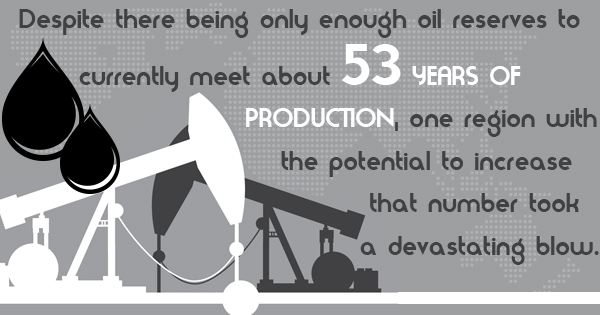
01 Oct Shell’s Offshore Alaska Drilling Project to End Due to Money and Efficiency Concerns
Despite there being only enough oil reserves to currently meet about 53 years of production, one region with the potential to increase that number took a devastating blow. The Royal Dutch Shell Oil Company announced Sunday they’re stopping their exploration and drilling project off the shore of Alaska, in the Chukchi Sea, because of cost-effective concerns. The company believes there may not be enough obtainable oil to make the project worthwhile, according to NPR.com.
There is a chance they will continue oil and gas exploration and drilling in the Arctic region again someday, but in a statement from the company on their website, Shell.com, they decided it is in their best interest to stop the project for the “foreseeable future.”
The multinational company has already spent $7 billion on the current efforts at what is known as the ‘Burger J Well.’ Out about 150 miles from Barrow, Alaska and drilled to a total depth of 6,800 feet the Burger J was slightly under the depth and distance of some of the biggest projects, which have drilled 200 miles from shore and 7,500 feet deep.
“Shell has found indications of oil and gas in the Burger J well, but these are not sufficient to warrant further exploration in the Burger prospect,” the statement reads. “The well will be sealed and abandoned in accordance with U.S. regulations.”
The search for potential oil and gas reserves off the shore of Alaska has been ongoing for several years. In fact, in 2012 the project came to a screeching halt over safety concerns and government regulations. They were able to secure federal approval this past May, but many people still opposed the idea. Local Alaska Public Media reporter, Rachel Waldholz, reported on the story for Alaskapublic.org.
“The project had drawn major protests from environmental groups, who worried drilling would impact marine mammals and that an oil spill in the arctic would be impossible to clean up,” Waldholz wrote.
Currently, offshore oil production accounts for approximately 30% of the world’s oil and half of the natural gas produced today. Had it been successful this project could have lead to a significant increase in that number, but at least for now that remains a pipe dream.
The continuous political/governmental volatility that affects these issues was another reason Shell gave for throwing in the towel. In addition to overall costs the company said it consistently faced a, “challenging and unpredictable federal regulatory environment in offshore Alaska.” The company will begin removing the oil drilling equipment and rigs immediately.



Sorry, the comment form is closed at this time.